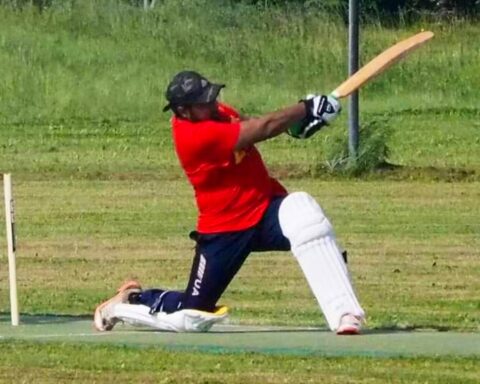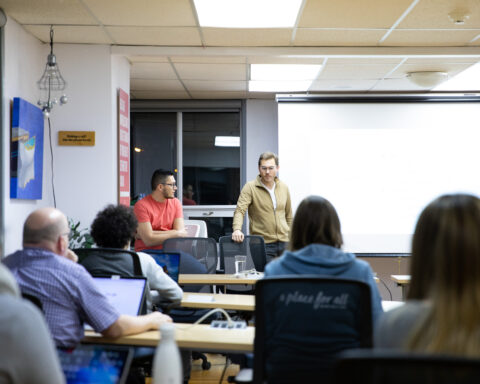“Canada needs you!” This is a sentiment I heard over and over while I was in Canada. I came to Canada with my husband and daughter, in August 2015, on a student visa to pursue my Ph.D. in economics.
I still pursue that dream of coming to Canada, but meanwhile, things have gone awry.
Our bank account manager in Ottawa was the first to utter these words to me: “Canada needs you! You are young, talented, educated and have work experience in economics and engineering, (my husband’s field) both of which are needed in Canada.”
Then my daughter’s teacher told us the same thing, adding that “Canada is the place that protects talented people”. In her opinion, we were among the most talented.
The backstory
I was a good student and had more than 10 years of work experience in business journalism. As a result, I was offered multiple offers of admission to a number of universities in Canada, Germany, the United States and Great Britain.
So, we started to think about our options as a family and we came to a final decision: Canada. A North American and English-speaking country with natural beauty, peaceful policies, and high educational standards, as well as welcoming immigration laws; Canada we assumed would be an ideal destination for our family.
Funding opportunities for international students were also an important factor, as this would help me focus on my studies and research interests.
With this in mind, I reached out to the head of the department for more information. An email response pointed me towards a partial scholarship through the university’s “Teaching Assistantship”.
But he also suggested that there were many external funding opportunities available, scholarships that I could apply for once I got to Canada. My good educational background meant I had a good chance of securing these scholarships, he said.
So, we packed up.
Running out of options
I was a good student in Canada. I attended all my classes, read all the books that were suggested and got good grades. Simultaneously, I tried to apply for scholarships from organizations outside the university. But there was a problem. Most scholarships were given to international students who had lived for more than 12 months in the city that housed the university. As such, I did not qualify.
Other scholarships were given to students who had started working on their thesis, provided that the thesis proposals were approved by funding organizations and met their objectives. I did not fit this category either.
It took almost 5 months for me to understand that the reality was far from what we had anticipated.
Besides, the amount of external funding for international students was very low. If I won one of them, I could not access other scholarships.
I explained my situation to the head of the department. He told me: “You are a perfect student, but the university cannot do anything about it.” That’s it!
I completed the first semester with an “A” in every course. I went to the head of the department and told him that I could not complete my studies without funding. I told him “money matters for me”, but I heard the same answer, “There are no other options for you.”
It took almost 5 months for me to understand that the reality was far from what we had anticipated.
I had come to Canada to get a Ph.D., become a researcher and a productive person in society. But I made the mistake of making a decision based on incomplete and, sadly, inaccurate information about funding available to international students. I trusted the information that was given to me and did not try to verify before moving to Canada.
I made up my mind. I did not want to be a “not-so-good” student, “not-so-good” mother, “not-so-good” provider and “not-so-good” person, who made a mistake but did not want to admit it.
I had just accepted at face value a possibility that came into my life because I was afraid to review, re-think or even return to where everything had started.
As a result, I dropped out of school and flew back home to Iran.
Costs on all sides
It was a hard time in my life. I was in the middle of a journey that was potentially leading my family and me to nowhere.
When we were on the flight back home, I was thinking about all the things that had happened to my family, all the challenges that we had faced, and all the decisions that we had made.
I thought about what I lost when I left school. The economic costs of this decision and the emotional suffering was tremendous. I also thought about the costs that the university endured: the cost of giving me a partial scholarship, the cost of losing someone who could have become a good researcher, and the cost of counting on someone and planning for her to be an academic, but losing her so soon.
At the time, I thought to myself, “These five months of my life were like a game with no winner, a lose-lose game”.
This piece is the first part of a mini-series within New Canadian Media’s Mentorship Program. The writer was mentored by Alireza Ahmadian.
Coming up next: What I Did Not Know About Communication and Why I Am Still Considering Immigrating to Canada
Mona Mashhadi Rajabi holds a Master’s degree in economics. As a business journalist living in Tehran, she has written for publications such as Donyay-e-eghtesad, Tejarat-e-farda, Jahan-e-sanat and Ireconomy.




